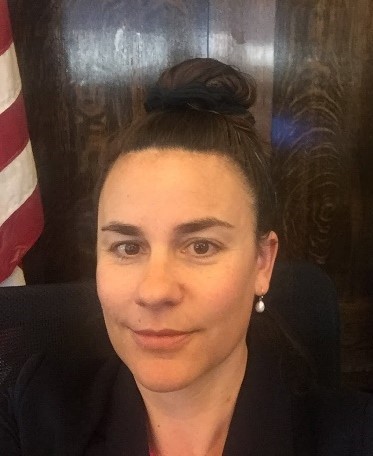Call Center
The department's Call Center assists taxpayers, licensees, businesses, and property owners by answering questions on the phone and via email and web notices.



The department's Call Center assists taxpayers, licensees, businesses, and property owners by answering questions on the phone and via email and web notices.
The Communications Office houses the department's web team, media contacts, publication design, and training staff.
The communications staff provides both technical and creative support for department staff, ensuring the department's messages effectively reach the right audience.

The Professional Development Office designs, establishes, and executes department-wide professional development training programs to fulfill the expectations and requirements for the Department of Revenue's employees' ongoing growth.

Program Specialist
The Taxpayer Advocate is an independent advocate who assists citizens by providing general and enhanced information; helps citizens navigate the department's website and online services; provides instruction on department processes, procedures; and helps when a citizen has been unable to resolve issues on their own, especially those of a unique or complex nature. Sometimes, rules, regulations, and statutes may limit outcomes. Still, the Taxpayer Advocate's goal is to reach a mutually acceptable result while maintaining a citizen's confidence in the integrity of the department's processes and procedures.
The scope of the Office of Taxpayer Assistance is not a substitute for the Department's routine administrative procedures, judicial proceedings, or appeals.

The Executive Office Staff provides administrative support services for the work units within the Director's Office.

The Financial Services Office ensures state tax collections and department expenses are correctly accounted for and works with leadership to coordinate the administration of the department's budget.
They do this by working closely with the governor's budget office, the Legislative Fiscal Division, and the Department of Revenue administrators to comply with legislative intent and MCA 17-7 Budgeting and Appropriations.

The Human Resources Office handles various human resource duties, including organizational and workforce development, employee and labor relations, staffing, employment law, performance management, compensation, and training and development.

The Legal Services Office (LSO) provides comprehensive legal services to the Director and coordinates all legal efforts of the department, its divisions, and its staff in their official capacities. The LSO comprises the Litigation Unit, the Bankruptcy Unit, and an administrative rules specialist.
The services that the LSO provides to the department include, but are not limited to:

Consistent with most federal and state agencies, the Department of Revenue retains an independent adjudicatory office, called the Office of Dispute Resolution (ODR). Its purpose is to render fair, objective, and unbiased decisions in tax disputes free from agency influence or direction.
The administrative law judges assigned to the ODR are not subject to performance ratings, promotions, demotions, or compensation based upon the number of times they decide in favor of the agency or the taxpayer. Along with all other agencies’ administrative law judges, they assume a unique status in state government.
It is the administrative law judge's responsibility to render decisions based upon the record and evidence of each case. The decisions should fully explain why one party prevails in any dispute. The administrative rules for the ODR are ARM 42.2.613 through 42.2.621.

Chief Administrative Law Judge
The Procurement, Contracts, and Facilities Office is responsible for the department's purchasing, safety and security, and statewide facility functions.
This office supports the efficient and safe operation of department facilities, conducts disaster and emergency preparedness, and ensures the continuity of government activities.
This office also works with vendors and contractors to ensure the department efficiently, effectively, and economically procures goods and services.

Tax Policy and Research (TPR) prepares the legislative fiscal notes that affect revenue and analyzes legislative proposals affecting the department, department economic data, and tax compliance.
